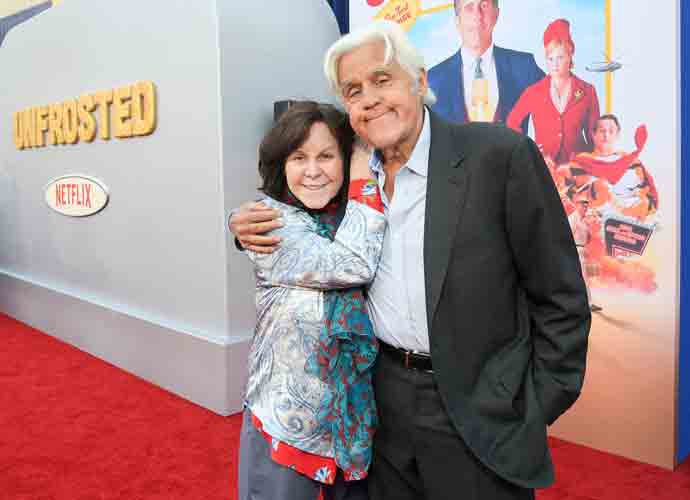Jay & Mavis Leno Make A Rare Public Appearance After Her Dementia Diagnosis
Comedian Jay Leno and his wife, Mavis Leno, stepped out for a special evening at the Los Angeles premiere of Unfrosted. This marks their first public appearance since revealing Mavis’s dementia diagnosis.
The couple, who have been married for over four decades, were in good spirits as they spoke to Entertainment Tonight on the red carpet.
Mavis expressed her positive outlook and stated, “I feel great,” during the interview.
The movie’s premiere, directed by Jerry Seinfeld, provided a much-needed opportunity for entertainment, according to Leno. “Thought I’d come to something fun for a change,” he said. “Everything is so controversial. Just to come to a funny, silly movie ― it’s great. I think people will have a great time.”
The Lenos’ public outing comes as they privately navigate Mavis’s health challenges. In January, Leno filed for a conservatorship of their joint estate and cited his wife’s cognitive decline. The request was granted in April.
The court filing outlined Mavis’ progressive loss of capacity and orientation to space and time over several years. The court documents mentioned Mavis’ neurologist, Dr. Hart Cohen, who noted instances where she did not recognize her husband or recall her date of birth.
In February, celebrity attorney Christopher C. Melcher said that Leno’s petition was created to help protect his wife if Jay cannot be there himself.
He told Fox News, “Jay and Mavis have a living trust in a will, but that was created before she got dementia, and what Jay is concerned about is that he might die before she does, and somebody is going to need to take control of these things. So, he’s just trying to do that planning now, and he needs a court order to rearrange their affairs because she has dementia and doesn’t have capacity to agree to anything right now.”
For individuals like Mavis, social engagement can play a crucial role in managing symptoms and preventing faster cognitive decline. Experts specializing in Alzheimer’s and dementia emphasize the importance of social connection. Caregivers need to consider the environments they expose individuals with dementia to, as busy or loud settings can be overstimulating, disorienting or stressful.
RELATED ARTICLES
Get the most-revealing celebrity conversations with the uInterview podcast!







Leave a comment